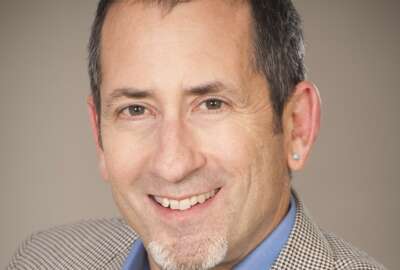Few phenomena have drawn as much attention and debate as whistleblowers. Congress, the Office of Special Counsel, inspectors general and good-government groups have expended millions of hours of study and rivers of ink on the subject of people who allege official wrongdoing.
There’s the Whistleblowers Act, passed in 1989 and updated a few years ago. President Donald Trump’s clampdown on certain forms of communication from federal agencies has drawn warnings from the Hill and from the OSC in relation to its possible effect on whistleblowing.
Sometimes blowing the whistle, or publicly disclosing wrongdoing, has exposed major fraud or mismanagement. Generous incentivizing of whistleblowing through so-called qui tam rules have made some whistleblowers rich, legitimately, when they enabled the government to recover large sums of money. Often whistleblowers must persevere through years of litigation and the headwinds that only a large bureaucracy is capable of generating.
Yet whistleblower complaints, like police or civil allegations in other domains, require investigation and proof. Sometimes, whistleblowers are wrong. They blow it.
A case in point is outlined in a 200-page report from the Defense Department inspector general. It concerns two people, called, in Dr. Seuss fashion, Complainant 1 and Complainant 2. They alleged that three high officials in Central Command falsified, enhanced, rosied up, suppressed parts of and otherwise treated intelligence products such that they enhanced the appearance of CENTCOM’s operational success against the Islamic State.
That’s a darn serious charge — for the military, for intelligence credibility and for the sort of ugly political spat such a charge can cause. Now, with differences of opinions among people in the career workforce breaking out into the open, there’s a greater danger that politically motivated moves for revenge or retaliation will arrive cloaked in the majesty of whistleblowing.
Allegedly at fault were CENTCOM’s intelligence director, Maj. Gen. Steven Grove, and two civilians: Gregory Ryckman, a senior executive service member and vice director of intelligence, and William “Buddy” Rizzio, senior leader at the Joint Intelligence Center.
One complainant told the Defense Intelligence Agency IG the trio engaged in “wanton violation of professional ethical standards; and exhibited gross incompetence in management and leadership.” The complainant said they made daily edits to analysis with the accumulated effect of producing a “false narrative.”
The other complainant said Grove and Ryckman routinely violated published standards for intelligence community analysis.
The pair was able to present enough documentation to spark a full-scale IG investigation requiring 30 staff members. And full scale it was. The report says the IG staff interviewed 120 witnesses in a total of 152 interviews. A computer search yielded more than 15 terabytes of data from unclassified to top secret. That’s in addition to 660 gigabytes of email. Somebody had to go through 17 million documents. The investigation looked at deleted emails, specific language and phrases in the intelligence products, who met with whom, whether anyone was intimidated during the investigation.
Inspector general staff found a lot of disagreement. Grove, Ryckman and Rizzio denied all of the allegations.
After a book-length description of CENTCOM and its intelligence processes, you realize how difficult and subtle this kind of work can be. It probably is easy to shade things to present this picture or that. Yet intelligence people are asked to tell what they think is going on. Some people think edits of analysts’ work amounts to falsification. (I’ve known a few reporters who think that.) Others think edits just distort. Still, others think this material is meant to be edited by more experienced people.
Even former Director of National Intelligence James Clapper is quoted, saying intel people frequently disagree and that supervisors draw different conclusions than some of their analysts.
We learn Rizzio arrived at work every day at 3:45 a.m. Great analyst or falsifier, we know he was a hard worker.
And where did this gigantic investigation lead?
The IG says it could not find sufficient evidence of falsification. Nor did the intelligence leaders “present, or allowed to be presented, any intelligence assessments that they did not believe were accurate.”
As for distortion, after an exhaustive search of before-and-after versions of documents, including linguistic analysis of a mathematically valid sample, the IG concludes that while some people could have perceived distortion of intelligence products, “We did not find that anyone intentionally attempted to distort intelligence.” In fact, the IG found Grove to be cautious, and preferring high confidence intelligence products, and a man who “greatly valued the input of operators on the ground.”
Nor did the IG find evidence of intelligence suppression by the leadership.
There’s much, much more, including a long section about the management style of Grove and Ryckman. They inherited a low-morale organization. Things got worse and then better. Grove’s contacts with Clapper — tut-tutted in media reports — were not found to be untoward.
Ultimately, the complainant’s complaints simply didn’t stand up. While the investigation was going on, Grove was reassigned to the job of director of the Army’s quadrennial defense review office. Up, down or lateral, I don’t know.
The case shows that whistleblower allegations deserve follow up, but objectively and not from a preconception they’re always right.
Copyright
© 2024 Federal News Network. All rights reserved. This website is not intended for users located within the European Economic Area.
